Advanced electromyography testing that pinpoints exactly what’s causing your symptoms so you can finally move forward with the right treatment.
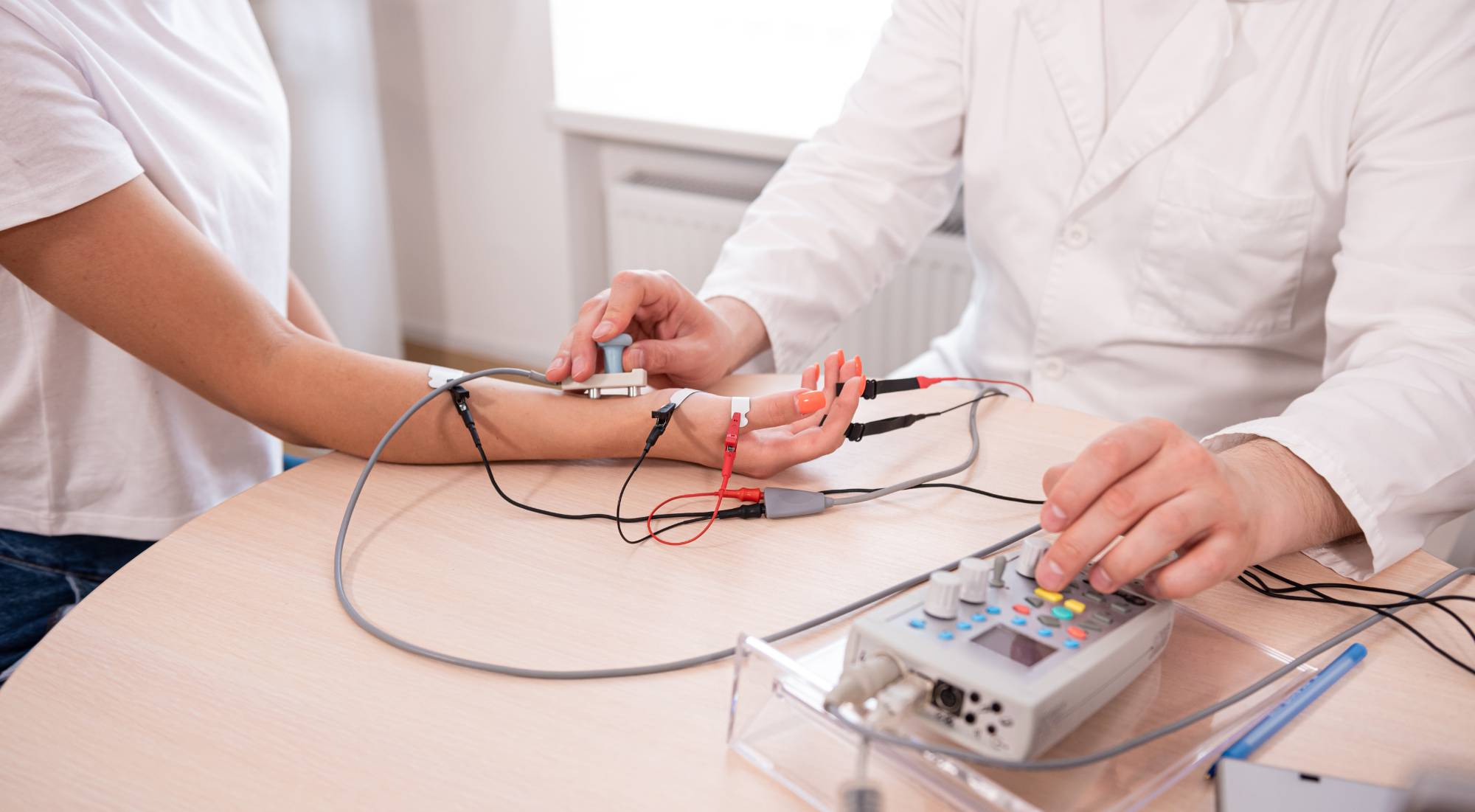
Reviews
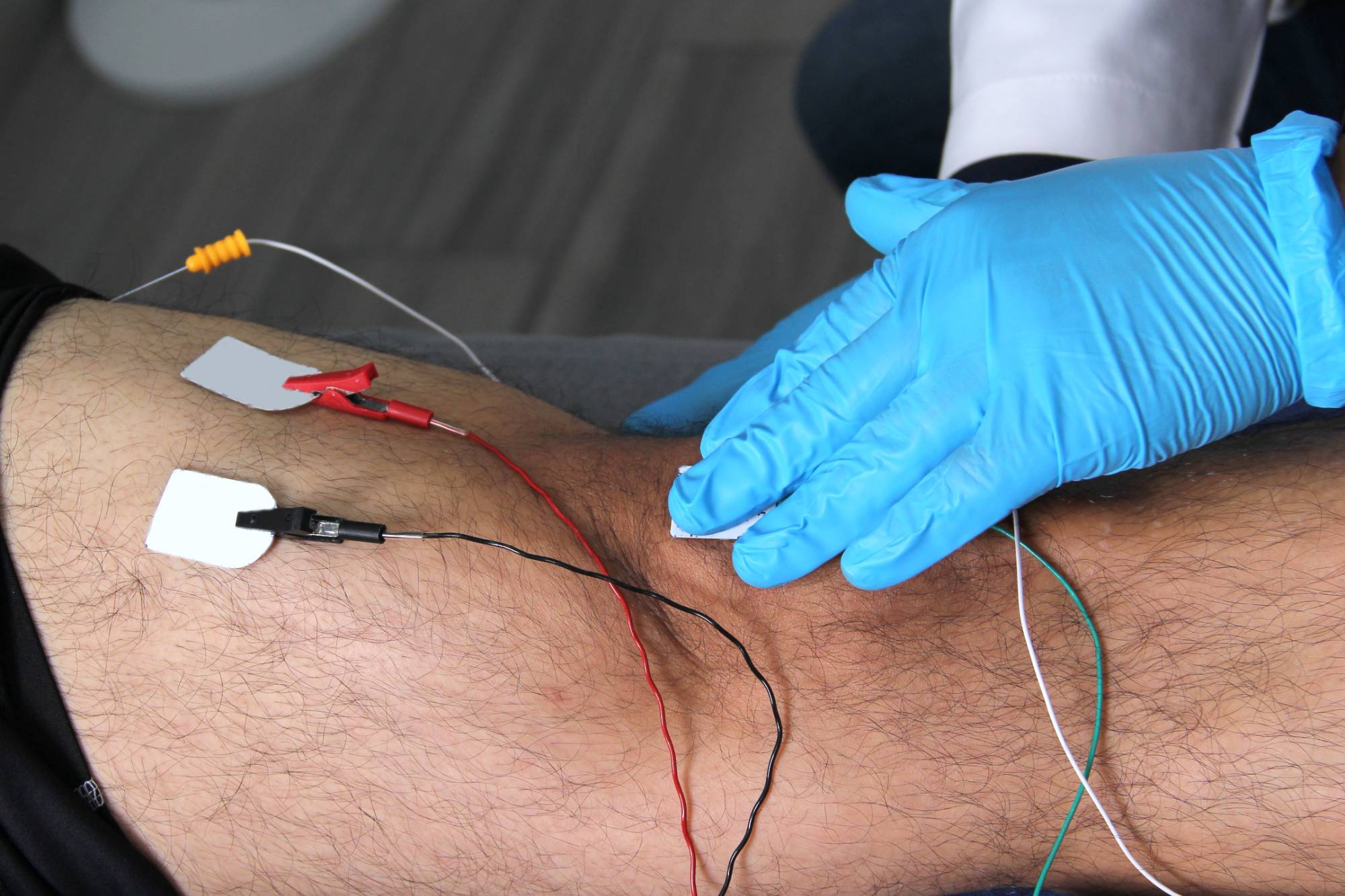
You’ve been dealing with numbness, tingling, or muscle weakness long enough. Maybe you’ve seen other doctors who couldn’t give you straight answers, or you’re worried about what these symptoms might mean.
EMG testing cuts through the guesswork. This diagnostic procedure measures the electrical activity in your muscles and nerves, showing us exactly where the problem is and what’s causing it. No more wondering if it’s serious, no more vague explanations about “possible” conditions.
Within minutes of your test, you’ll have concrete results. You’ll understand whether you’re dealing with a pinched nerve, muscle disorder, or something else entirely. More importantly, you’ll know what needs to happen next to get you feeling better.
NY Spine Medicine has been providing comprehensive neurological diagnostics to South Florida patients for years. We understand that when you’re dealing with nerve or muscle symptoms, you need answers fast.
Our team uses advanced EMG equipment and nerve conduction study techniques to deliver precise results. Every test is performed by experienced professionals who take the time to explain what we’re finding and what it means for your specific situation.
Located conveniently in Brickell, we serve busy professionals and residents who expect quality care without the runaround. You’ll get the expertise of a specialized neurological practice with the efficiency that fits your schedule.
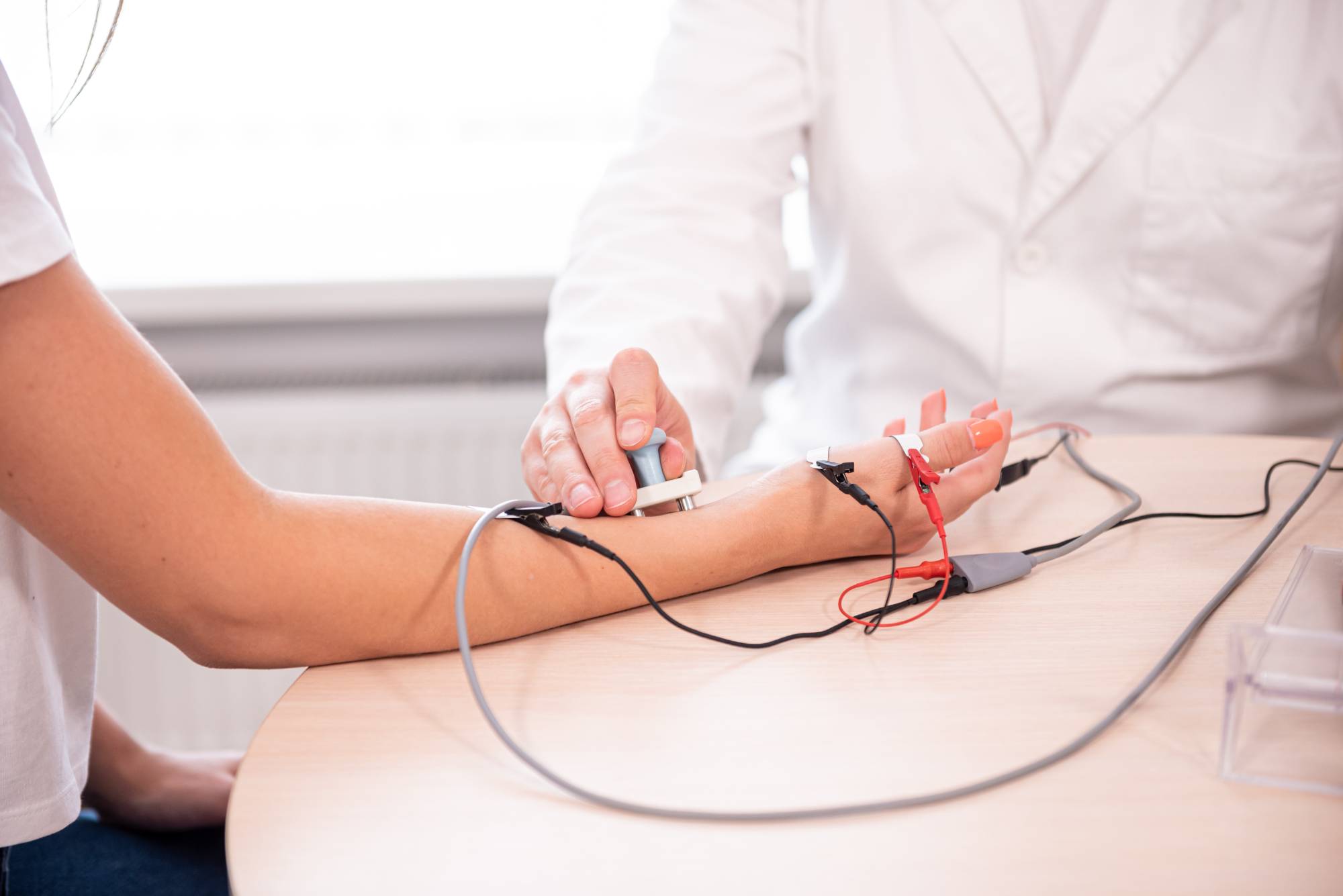
The EMG testing process is straightforward and typically takes 30-60 minutes. First, you’ll discuss your symptoms and medical history with our specialist. This helps us target the testing to your specific concerns.
During the nerve conduction study portion, small electrodes are placed on your skin to measure how well your nerves transmit signals. For the electromyography portion, a thin needle electrode is inserted into specific muscles to record their electrical activity. Yes, there’s brief discomfort, but most patients find it much more tolerable than they expected.
You’ll get your results immediately after testing. Our specialist will review the findings with you, explain what they mean in plain terms, and discuss your treatment options. You’ll leave with a clear understanding of your diagnosis and next steps.
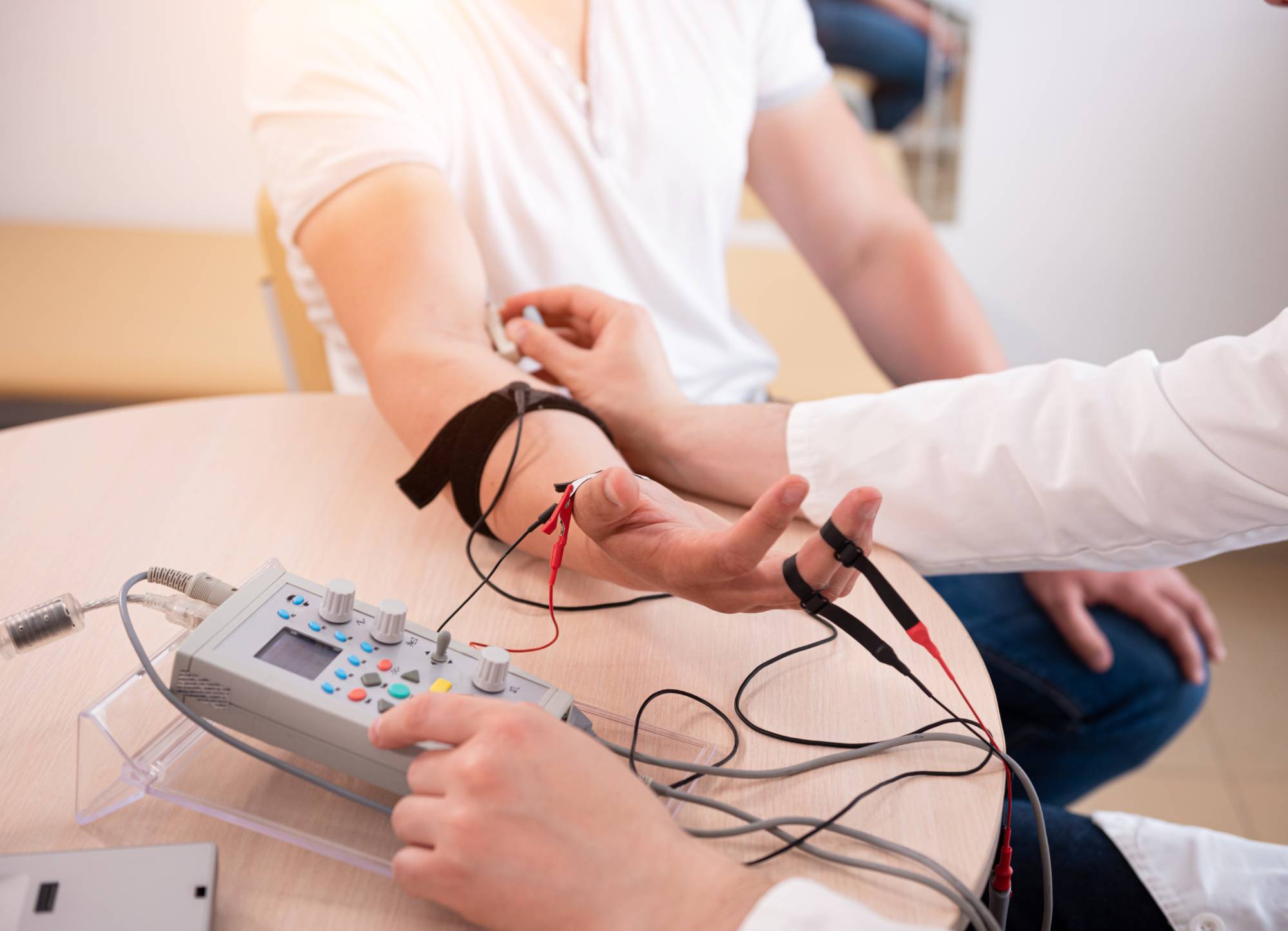
Ready to get started?
Your EMG testing includes both electromyography and nerve conduction studies in one appointment. This comprehensive approach gives a complete picture of your nerve and muscle function, not just part of the story.
The testing covers multiple nerve pathways and muscle groups depending on your symptoms. Whether you’re dealing with carpal tunnel syndrome, sciatica, peripheral neuropathy, or muscle disorders, our diagnostic approach is tailored to identify your specific condition.
After testing, you’ll receive a detailed report of findings and clear recommendations for treatment. We coordinate with your referring physician or can provide direct treatment recommendations based on the results. Most insurance plans cover EMG testing when medically necessary.
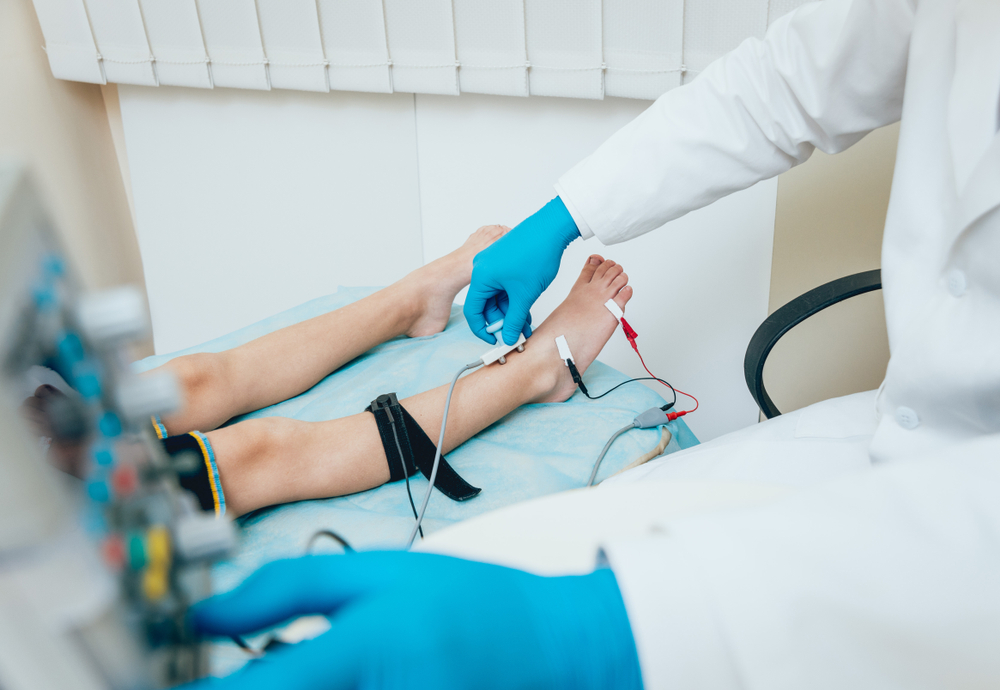
New York:
Florida:
Support